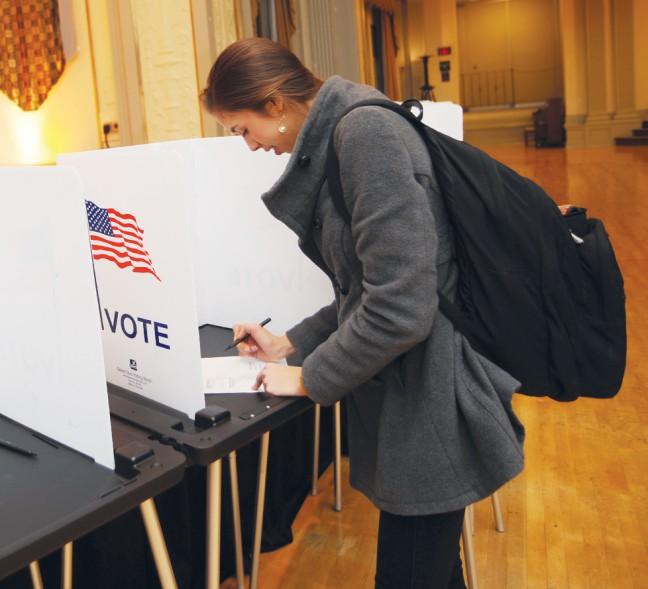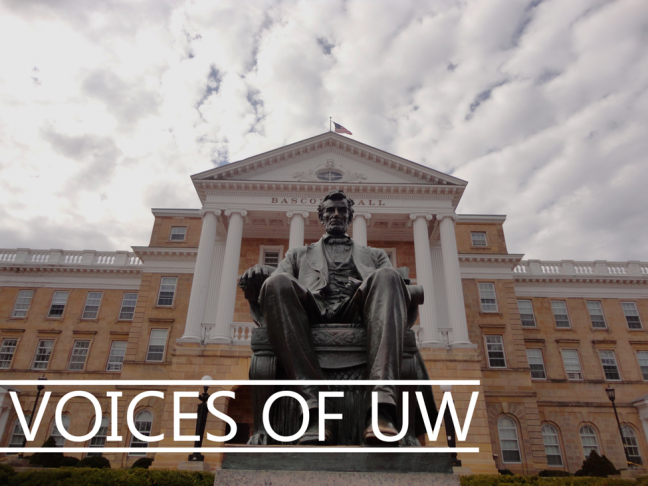There seems to be only one line of thought regarding how to treat Holocaust deniers. It’s the daily columns of condemnation and even “Holocaust awareness” demonstrations.
Instead of engaging Holocaust deniers, ignore them. There are three reasons to ignore those who deny the actuality of the well-documented Holocaust.
First is the unoriginal argument that giving attention to Holocaust deniers will only lend them legitimacy. If people outlandishly claimed that American slavery never happened, you would dismiss them without second thought. To contest their point creates conflict, which is a platform for controversy; controversy is the pretext to more discussion, which is what Holocaust deniers want. Thus, forcefully and prominently protesting their issue is self-defeating, detrimental even, because the undue attention acknowledges an issue.
Second, it allows people to be diverted from a real issue. In order to truly believe that the Holocaust didn’t occur and was instead a Zionist conspiracy of such proportions, one would need to be either mentally incapacitated or extremely self-delusional. I’m sure there are scores of other historical events and facts with much less documentation and evidence that Holocaust deniers accept as truth. One must then ask: “Why apply another standard to the Holocaust and claim that the evidence doesn’t suffice?” Clearly, there are exterior motives for which one would engage in such self-delusion, the most obvious being the use of Holocaust denial as a political device in the Israeli-Palestinian conflict. When Mahmoud Ahmadinejad denies the Holocaust in the context of the Israeli-Palestinian conflict, he is diverting attention from constructive thought about the issue. With this, we see that giving Holocaust deniers attention is regressive because it acquiesces to diversion from a real issue.
Third, and most importantly, in a certain respect it doesn’t matter whether the Holocaust happened. Noam Chomsky had this to say about the plausibility of conspiracy theories about U.S. government involvement in events like the JFK assassination or 9/11: “Even if it were true, which is extremely unlikely, who cares?” The point is, whether those conspiracy theories are true is irrelevant to contemporary reality. If, tomorrow, it were proven beyond doubt that the Bush Administration played a proactive role in 9/11, would we suddenly cease military operations in Afghanistan and Iraq and give them our sincere apologies? No. If it were proven beyond doubt that the Holocaust was actually a grand illusion executed by Zionist nationalists to garner sympathy for Jews and ultimately create a Jewish state in Palestine, we wouldn’t overturn the international legislation concerning crimes of humanity, legislation which the Holocaust single-handedly induced.
Further, if it were proven to be untrue, would it change what the Holocaust has meant to us? No. If it were a hoax, the imagery, the stories, the survivors would still be symbolic of similar historical crimes of mass murder. Through these, we’ve already learned what depths of faith, dogma and delusion the mind is capable of, and the horrendous crimes that can be perpetrated through those psychological means. The Holocaust represents the frailty of perception and morality, the ultimate lowliness of which humanity is capable. It indicates that nothing is evil to the extent that humans are incapable of it.
Next time there is an explosion of Holocaust denial, ignore it. Talk about an actual issue, and understand that, in a certain respect, their argument doesn’t matter.
Kyle Barthel ([email protected]) is a senior majoring in history.











